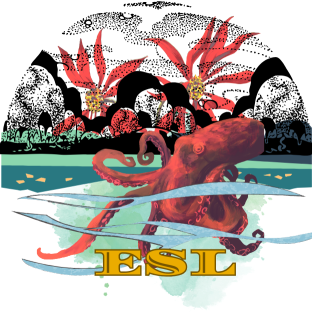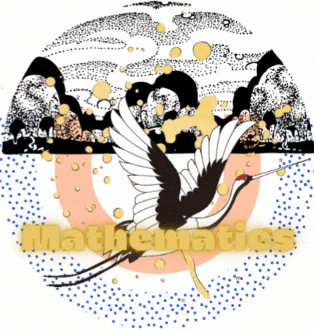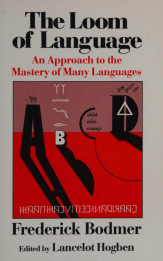Language Learning
Why Learn A Second Language
Understanding of the self needs a mirror, and learning another language acts as a mirror, reflecting back on our understanding of our native tongue and revealing aspects of our own thought processes we may have never considered.
When learning another language you inevitably learn more about your own. This introspective journey fosters a deeper appreciation for the nuances of language and the unique ways different cultures carve meaning from the world around them. Ultimately, the pursuit of fluency in another language becomes not just a practical skill, but a path towards a richer understanding of both the target language and, surprisingly, ourselves.

Motivation Is Key - How to Choose Which One?
It is completely a personal choice and no one can choose it for you - because language learning is time consuming, and staying motivated is key - choose a language that offers you the most joy. Don't be afraid to choose a lesser known language. Although finding material might be hard, with the internet things are getting easier and easier. Don't get discouraged!

The Logic of it All
Consider learning logic based languages - like Esperanto or Loglan. These languages were created to communicate with structures that did not form over time or change with fads, conquests or war. Learn a language like this starts your brain on the road of multilingual, with the added bonus of joining a community of communicators.
Linguistic Relations
 We all know that neighboring countries with shared borders share little parts of themselves; food, culture and borrow words - and living languages tend flow and change with popular trends coming and making changes, and life in general acting as a catalyst for creating new words (think fax machine, television, telephone and so on). And like a good neighbor, it would be nice to be able to speak to one another - consider, if you nothing else moves you, to learn a language of a neighboring community.
We all know that neighboring countries with shared borders share little parts of themselves; food, culture and borrow words - and living languages tend flow and change with popular trends coming and making changes, and life in general acting as a catalyst for creating new words (think fax machine, television, telephone and so on). And like a good neighbor, it would be nice to be able to speak to one another - consider, if you nothing else moves you, to learn a language of a neighboring community.
Another reason to consider learning a neighbor's language is although there is no guarantee of comprehension, there are often loan words, similarities and structural connections. Historic relationships between languages is also a good indicator of some also being a good indicator of some cognates and similar grammatical structures. Cognates are words that share a common ancestor and often retain some resemblance in spelling and pronunciation. For example, the English word "water" and the German word "Wasser" are both cognates derived from a Proto-Indo-European root. These shared elements can make learning a language with a historical connection significantly easier, as you'll encounter familiar vocabulary and grammatical patterns, giving you a head start in your language learning journey.

This is not to say that you will understand another language simply because they share an ancient ancestry. However, if you know of the existence, you can become a language detective, enjoying the connections. Playfulness and novelty, creation and imagination - these are your tools in the language acquisition process. Learn about languages from a Lebanese Language enthusiast.
Dialects
Dialects, like branches on a tree, share a common ancestry with a language but develop unique characteristics over time. These variations can range from the subtle, such as differing vowel sounds, to the more pronounced, like the emergence of entirely new vocabulary within a specific region. However, the challenge lies in the absence of a universally agreed-upon set of criteria to differentiate dialects from independent languages. Mutual intelligibility, a seemingly logical benchmark, proves unreliable. Speakers of Scottish Gaelic and Irish Gaelic, for instance, might struggle with comprehension despite their shared Celtic roots. Conversely, dialects like Cantonese and Mandarin Chinese, while demonstrably distinct, exhibit a level of mutual intelligibility that wouldn't necessarily preclude them from being classified as separate languages.
Ultimately, the distinction between language and dialect often hinges on factors beyond pure linguistics. Political recognition plays a crucial role. When a dialect becomes the official language of a newly formed nation-state, it transcends its regional status and gains independent legitimacy. Conversely, dialects associated with marginalized groups may be perceived as inferior or "incorrect," despite their inherent complexity and historical significance.

Here is an example of different dialects of the Arabic language. They are not all mutually comprehensible even though they are all speaking Arabic - and that is where Modern Standard Arabic (MSA) comes in, and it is used in formal news, print media, formal programming and subtitles.
- Modern Standard Arabic
- Egyptian Arabic
- Levantine Dialect - spoken in Syria, Lebanon, Jordan, Palestine, Israel (by minorities), Southern Turkey
- Maghrebi Dialect - Morocco (Darija), Algeria (Darija), Tunisia (Darija), Libya (Darija), Mauritania (Hassaniya) - This dialect has some influences from Berber languages.
- Peninsular Arabic - Najdi Arabic: Spoken in central Saudi Arabia.
- Khaleeji Arabic: Spoken in the eastern Arabian Peninsula, including Saudi Arabia, Kuwait, Bahrain, Qatar, UAE, and Oman.
Although you might find the whole idea difficult to understand, try to simply accept that dialects are part of communication. Start with the basic structure and either get advice from your teacher, the books you study, or choose a country and start with that dialect.
Raising Children in Multiple Languages
Other Types of Languages to Learn
Resources
Learn Languages online with loecsen










